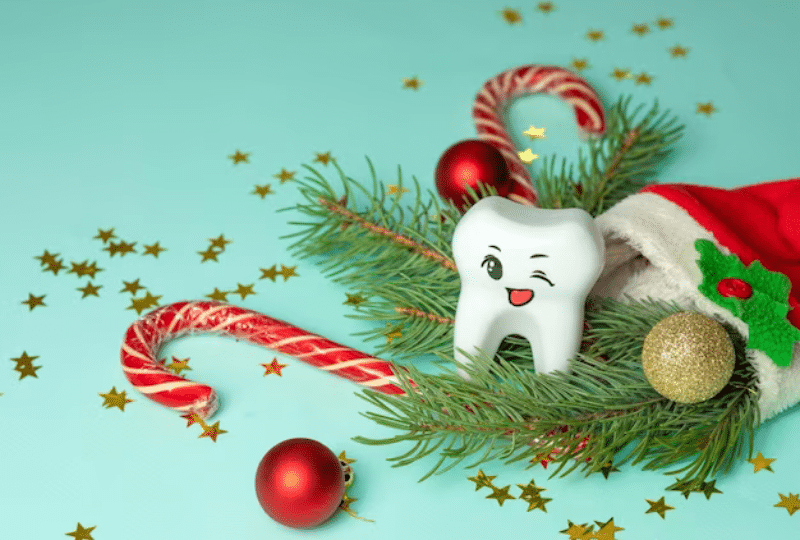
Welcome to our blog post on teeth sensitivity, where we dive into the causes of this common dental issue and provide tips on avoiding it. We all know that feeling – that sharp pain when we bite into something cold or hot or even when we sip our favorite beverage. It’s not only uncomfortable but can also be quite frustrating. But fear not! This article will explore what causes teeth sensitivity and offer practical solutions to help you keep your pearly whites happy and pain-free. So sit back, relax, and begin this journey toward a sensitivity-free smile!
What Is Teeth Sensitivity?
Teeth sensitivity, or dentin hypersensitivity, is a common dental problem affecting millions worldwide. It is characterized by a sharp and sudden pain or discomfort in the teeth when exposed to certain stimuli such as hot or cold foods and drinks, sweet or acidic substances, or even just brushing and flossing.
So what exactly causes this sensitivity? Well, it all comes down to the protective layer of your teeth called enamel. The enamel acts as a shield for the underlying dentin – which contains tiny tubules filled with nerve endings – preventing them from being directly exposed to external factors. However, when the enamel wears down or becomes damaged for various reasons, such as aggressive brushing techniques, tooth decay, gum recession, or even teeth grinding (bruxism), these tubules get exposed, allowing external stimuli to reach the nerves inside your teeth.
The result? You feel That unpleasant zing when you indulge in an ice cream cone on a hot summer day or sip your morning coffee. It can be quite bothersome and may even affect your daily life by making certain foods an uncomfortable experience.
Understanding what triggers your teeth sensitivity is crucial in finding ways to manage it effectively. In our next section, we’ll explore some of the most common causes of this condition so you can better identify if any apply to you. So keep reading!
Causes Of Teeth Sensitivity
Teeth sensitivity is a common dental problem that can cause discomfort and pain when consuming hot or cold foods and beverages. Several factors can contribute to teeth sensitivity, including:
Enamel Erosion: The outer layer of our teeth, called enamel, protects the underlying dentin. However, when the enamel wears away due to acidic food and drinks or aggressive brushing techniques, it exposes the dentin, which contains microscopic tubules leading to the nerves.
Gum Recession: When gums recede or pull back from the tooth surface, it exposes the sensitive roots of the teeth. Gum disease, poor oral hygiene habits, or aging can cause this.
Tooth Decay: Cavities in your teeth can also lead to sensitivity as they expose the inner layers of your tooth structure.
Teeth Grinding: Regularly grinding or clenching your teeth puts excessive pressure on them and can wear down enamel over time.
Dental Procedures: Some dental treatments, like fillings or crown placements, may initially cause temporary sensitivity due to inflammation in the surrounding tissues.
Understanding these causes of teeth sensitivity is important for preventing and managing this issue effectively.
How To Avoid Teeth Sensitivity
Many people experience teeth sensitivity at some point in their lives, and it can be quite uncomfortable. The good news is that you can avoid or minimize this issue.
First and foremost, it’s essential to maintain good oral hygiene. Brush your teeth twice a day with a soft-bristled toothbrush and fluoride toothpaste. Be gentle while brushing, as aggressive brushing can wear down the enamel and expose the sensitive layers of your teeth.
In addition to regular brushing, make sure to floss daily. This helps remove plaque and food particles between your teeth, reducing the risk of gum recession and sensitivity.
Avoid consuming acidic foods and drinks excessively, as they can erode tooth enamel over time. If you occasionally indulge in acidic treats like citrus fruits or soda, rinse your mouth with water afterward to neutralize the acid.
Investing in a quality desensitizing toothpaste can also help alleviate sensitivity. These specially formulated kinds of toothpaste contain ingredients that block pain signals from reaching the nerves in your teeth.
Don’t skip dental check-ups! Regular visits to your dentist allow them to identify any potential issues early on so they can be addressed before they worsen into sensitivity problems.
By following these preventive measures consistently, you’ll significantly reduce the chances of developing teeth sensitivity – allowing for more enjoyable meals without discomfort!
The Bottom Line
Taking care of your teeth and avoiding sensitivity is crucial for maintaining a healthy, pain-free smile. By understanding the causes of teeth sensitivity, you can take proactive measures to prevent it from occurring or worsening.
Remember, poor oral hygiene practices such as brushing too hard or using abrasive toothpaste can lead to enamel erosion and expose the sensitive dentin layer. Avoiding acidic foods and drinks, reducing consumption of sugary snacks, and quitting smoking are important steps in protecting your teeth.
Regular visits to the dentist for check-ups and cleanings will help identify any dental issues early on. Your dentist may recommend desensitizing toothpaste or other treatments to alleviate sensitivity symptoms.
Adopting good oral hygiene habits, making mindful dietary choices, and seeking professional dental advice can greatly reduce your risk of developing teeth sensitivity. So why wait? Start taking care of your precious pearly whites today!
Remember – prevention is key to keeping your smile bright, beautiful, and pain-free!


